
Johann Albert Fabricius was a German classical scholar and bibliographer.

Henry Montagu, 1st Earl of Manchester was an English judge, politician and peer. He is mainly remembered today as the judge who sentenced Sir Walter Raleigh to death.
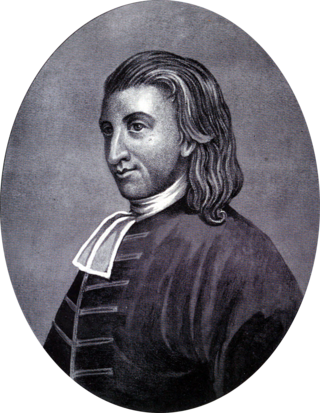
Thomas Boston was a Scottish Presbyterian church leader, theologian and philosopher. Boston was successively schoolmaster at Glencairn, and minister of Simprin in Berwickshire, and Ettrick in Selkirkshire. In addition to his best-known work, The Fourfold State, one of the religious classics of Scotland, he wrote an original little book, The Crook in the Lot, and a learned treatise on the Hebrew points. He also took a leading part in the Courts of the Church in what was known as the "Marrow Controversy," regarding the merits of an English work, The Marrow of Modern Divinity, which he defended against the attacks of the "Moderate" party in the Church. Boston, if unduly introspective, was a man of singular piety and amiability. His autobiography is an interesting record of Scottish life, full of sincerity and tenderness, and not devoid of humorous touches, intentional and otherwise.

Gaetano Filangieri was an Italian jurist and philosopher.
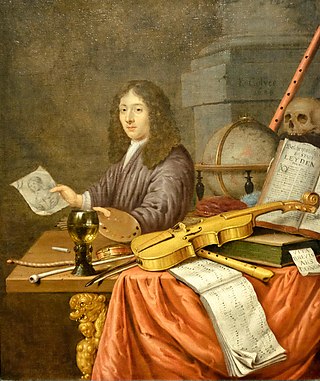
Evert Collier was a Dutch Golden Age still-life painter known for vanitas and trompe-l'œil paintings. His first name is sometimes spelled "Edward" or "Edwaert" or "Eduwaert" or "Edwart," and his last name is sometimes spelled "Colyer" or "Kollier".
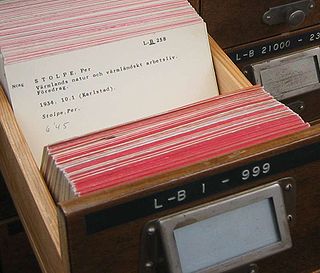
An index card consists of card stock cut to a standard size, used for recording and storing small amounts of discrete data. A collection of such cards either serves as, or aids the creation of, an index for expedited lookup of information. This system is said to have been invented by Carl Linnaeus, around 1760.
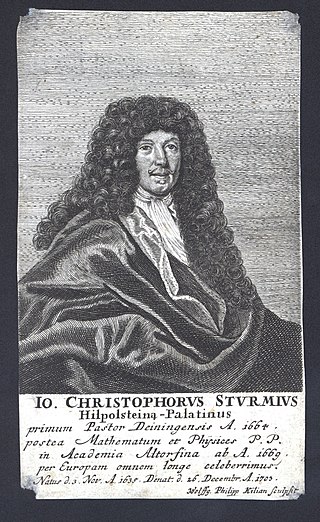
Johann Christoph Sturm was a German philosopher, professor at University of Altdorf and founder of a short-lived scientific academy known as the Collegium Curiosum, based on the model of the Florentine Accademia del Cimento. He edited two volumes of the academy's proceedings under the title Collegium Experimentale. In 1670, he translated the works of Archimedes into German.
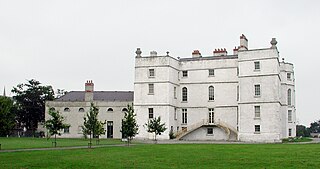
Dr Dudley Loftus was an Anglo-Irish jurist and noted orientalist.
David Provost or David Provoost was the 24th Mayor of New York City, serving his appointment to the position from 1699 to 1700.
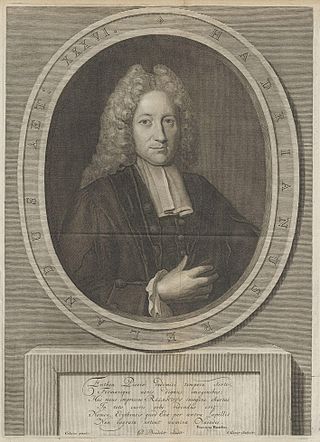
Adriaan Reland was a noted Dutch Orientalist scholar, cartographer and philologist. He made significant contributions to Middle Eastern and Asian linguistics and cartography, including Persia, Japan and the Holy Lands.

Joseph Trapp (1679–1747) was an English clergyman, academic, poet and pamphleteer. His production as a younger man of occasional verse and dramas led to his appointment as the first Oxford Professor of Poetry in 1708. Later his High Church opinions established him in preferment and position. As a poet, he was not well thought of by contemporaries, with Jonathan Swift refusing a dinner in an unavailing attempt to avoid revising one of Trapp’s poems, and Abel Evans making an epigram on his blank verse translation of the Aeneid with a reminder of the commandment against murder.
Pierre Petit was a French scholar, physician, poet and Latin writer.

John Edwards (1637–1716) was an English Calvinistic divine.
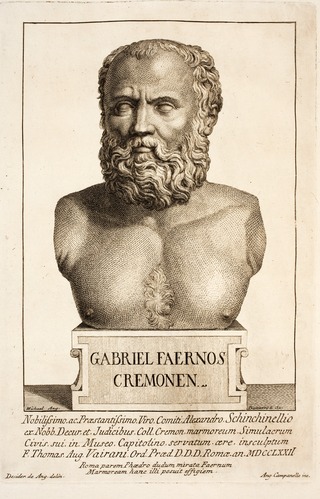
The humanist scholar Gabriele Faerno, also known by his Latin name of Faernus Cremonensis, was born in Cremona about 1510 and died in Rome on 17 November 1561. He was a scrupulous textual editor and an elegant Latin poet who is best known now for his collection of Aesop's Fables in Latin verse.

Sir Francis Grant, Lord Cullen was a Scottish judge.
Professor Archibald Campbell SwintonFRSE DL LLD LLB, was a Scottish author, politician and professor of civil law at Edinburgh, 1842–62.

Alexander Russell was a Scottish physician and naturalist, spending 14 years at the English factory in Aleppo.
William Clubbe (1745–1814) was an English clergyman and poetical writer.
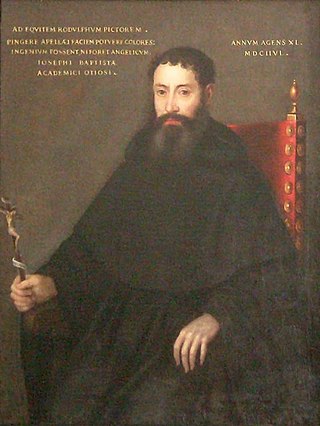
Angelico Aprosio was an Italian Augustine monk, scholar, and bibliophile.

John Savage (1673–1747) was an English Anglican clergyman and author.

















